- Home
- J. D. Robb
Betrayal in Death Page 6
Betrayal in Death Read online
Page 6
“I’ll do that.”
The hotel office was designed to uplift its more pedestrian functions. And as anything Roarke designed, it was as much concerned with comfort as with efficiency. The topflight communication center and equipment were blended into graceful furnishings and stylish wall panels. The ambiance was of an urban exec’s fashionable pied-á-terre.
Mick took a seat in one of the deeply cushioned chairs, stretched out his legs, scanned the room—and Roarke imagined, the fenced value of its contents. Then he sighed and studied the view out the wide glass doors and the stone balcony beyond them.
“Yes, you’ve done for yourself.” His eyes darted back to Roarke, the laughter in them impossible to resist. “If I give you my word not to lift any of your doodads here, will you stand an old friend to a pint?”
Roarke moved to a wall panel and, opening it, ordered two Guinnesses from the AutoChef inside. “It’s programmed to draw them proper, so it’ll take a minute.”
“Been a while since we lifted one together. How long do you think? Fifteen years?”
“There or about.” And the fifteen before that, he thought, we had been as thick as, well, thieves. Roarke leaned back against the table while the Guinnesses were built, but didn’t fully relax his guard. “I’d been told you’d bought it in a Liverpool pub. Knife fight. My sources are usually reliable. So why is it, Mick, you’re not making book in hell?”
“Well now, I’ll tell you. You may recall my mother, God bless her cold, black heart, would often tell me that it was my fate to die with a knife in my belly. She claimed whenever she had a good snootful of the Irish to have the sight.”
“Is she still living then?”
“Oh aye, last I heard. I left Dublin some time before you did, you’ll remember. Traveling here and there, out to make my fortune however it could be made. Doing bits of business, mostly moving merchandise of one kind or another from one place to another place where it might cool off before moving it yet again. Which was what I was doing in Liverpool on that fateful night.”
Idly, Mick opened a carved wooden box on the table beside him and arched his brows at the French cigarettes inside. They were vicious in price, and the use of them banned nearly everywhere a body could go.
“Mind?”
“Help yourself.”
For friendship, Mick took only one rather than palming a half dozen as he would have otherwise. “Now where was I?” he said as he lit it with a slim gold perma-match out of his pocket. “Ah, yes. Well then, I had half the take in my pocket, and was to meet my . . . client for the rest of it. Something went wrong. Port Authority garda got wind, raided the warehouse. They were looking for me, as was the client who got it into his head I’d weaseled on the deal.”
At Roarke’s suspicious frown, Mick laughed and shook his head. “No indeed, I did not. I’d only half my take, so why would I? In any case, I ducked into the pub to think it through and see if I could arrange for some quick and quiet transpo. Getting out was the main thing, what with the cops and the thugs out for my blood. And wouldn’t you know it, while I’m sitting there stewing about losing my fee, about going on the run, a fight breaks out.”
“A fight in a waterfront pub in Liverpool,” Roarke said mildly as he slid two pints of dark, foamy Guinness from the AutoChef. “Who’d believe it?”
“A hell of a one it was, too.” Mick took the beer, pausing in his story to raise his glass to Roarke. “To old friends then. Slainté.”
“Slainté.” Roarke took a seat, tasted the first thick sip.
“Well, I tell you, Roarke, fists and words were flying, and there I was just wanting to keep what you’d call a low profile for the time being. The barman, well, he’s got himself a bat and he’s banging it on the bar and the patrons are starting to whistle and take up sides. Then the two who started it—and I never heard what set them off—draw knives. I’d’ve slipped out at that point, but there was no getting past them without risking losing a slice of something off me person, which I wasn’t willing to do. It seemed wiser to blend with the crowd, which was taking bets and circling. And some of the onlookers got into the spirit and began to punch each other for the fun of it.”
It was easy to picture, and easy to remember how many times they’d started such an evening’s entertainment themselves. “How many pockets did you pick during the show?”
“I lost count,” Mick said with a grin, “but I made up a small portion of my lost fee. Chairs began to fly, and bodies with them. I couldn’t help but get caught up in the thing. And damned if the two who’d started it didn’t end up sticking each other. Mortal, too. I could see that right off by the blackness of the blood. And the smell of it. You know how that whiff of death hits the nose.”
“Yes, I do.”
“Well, most of the crowd backed off then quick enough, and began to disburse like rats leaving a ship. And the barman, he goes to call the cops. So it comes to me, like a flash of light, this one dead man here’s my coloring and close to my build as well. So, it’s fate, isn’t it? Mick Connelly needs to vanish, and how better than to be dead on the floor of a Liverpool pub? I switched IDs with him and ran.
“So Michael Joseph Connelly died bleeding there, as his mother had predicted, and Bobby Pike took the next transpo for London. And that’s my story.” He drank deep, let out a breath of pleasure. “Christ, it’s good to look at that face of yours. We had some times, didn’t we? You and me and Brian and the rest.”
“We did, yes.”
“I heard about what happened to Jenny, and to Tommy and Shawn. It broke my heart knowing they died as they did. There’s only you and me and Bri left from the old Dublin gang.”
“Brian’s in Dublin still. He owns The Penny Pig, and mans the bar himself half the time.”
“I’ve heard it. I’ll wind myself back to Dublin town again, and see for myself one day. Do you go back much?”
“No.”
Mick nodded. “Not all the memories are good ones, after all. Still, you got well out, didn’t you? Always said you would.” He rose then, carrying his half-empty pint as he strolled to the glass doors. “Think of it. You own this whole bloody place, and Christ knows what besides. Last years, I’ve been over the world and off it, and nowhere I’ve been could I say I haven’t heard the name of my old boyhood mate bandied about. Like a damn religion.” He turned back and grinned. “Fuck me, Roarke, if I’m not proud of you.”
It struck Roarke, oddly, that no one who had known the boy had ever said those words to the man. “What are you doing with yourself, Mick?”
“Oh, bits of business. Always bits of business. And when some of it brought me to New York City, I said to myself, ‘Mick, you’re going to get yourself a room in that fancy hotel of Roarke’s and you’re going to look him up.’ I’m traveling under my own name again. Time enough’s passed since Liverpool. And too much time’s passed I’m after thinking since I had a pint with old friends.”
“So you’ve looked me up, and we’re having our pint. Now, why don’t you tell me what’s behind it all?”
Mick leaned back against the door, lifted the pint to his lips, and studied Roarke with those dancing eyes. “There never was any getting over on you. A natural radar you’ve always had for bullshit. But the fact is what I’ve told you is true as gold. It just so happens that it occurred to me that you might be interested in some of the business I’m here to conduct. It’s a matter of stones. Pretty colorful stones just wasting away in some dark box.”
“I don’t do that sort of thing anymore.”
Mick grinned, let out a short laugh, then blinked as Roarke merely sat watching him. “Oh come now, this is Mick. You’re never going to tell me you’ve retired those magic hands of yours.”
“Let’s just say I’ve put them to different uses. Legal ones. I haven’t needed to pick pockets or lift locks in some time.”
“Need, who said anything about need?” Mick said with a bluster. “You’ve a God-given talent. And not just your hands, but your brain. Ne
ver in my life have I met anyone with a slick and cagey a brain as yours. And for larceny it was created.” Smiling again, he walked back to sit. “Now you’re not going to expect me to believe you run all of this fucking empire of yours on the up and up.”
“I do.” Now. “And that’s a challenge in itself.”
“My heart.” Dramatically, Mick clutched his chest. “I’m not as young as once I was. I can’t take this kind of shock to the system.”
“You’ll live through it, and you’ll have to find another setting for your stones.”
“A pity. A shame. A sin, really, but what is, is.” Mick sighed. “Straight and narrow, is it? Well, I’ve got something straight as I like to mix things up to keep myself fresh. I’ve a little enterprise I’ve started with a couple of fellows. Small chickens compared to a big rooster like you. Scents. Perfumes and the like, with the idea of packaging the product with an old-fashioned spin. Romance, you know. Would you be interested in an investment?”
“I might.”
“Then we’ll talk about it sometime while I’m in town.” Mick got to his feet. “For now I best see what sort of accommodations I’ve copped here, and let you get back to whatever it is you do with yourself.”
“You’re not welcome at The Palace,” Roarke said, rising. “But you are in my home.”
“That’s kind of you, but I’m not looking to put you out.”
“I thought you were dead. Jenny and the others, save Brian, are. I never had them in my home. I’ll have your luggage seen to.”
There were already psychiatric, personality, and pattern profiles generated on Yost through various law enforcement agencies around the globe. Still, Eve considered sending them, and her notes on him, to Dr. Mira, the NYPSD’s top profiler, for a nutshell analysis.
But a professional killer was, in essence, only a tool. However much she wanted him, she wanted his employer more.
“The FBI estimates Yost’s fee for a single hit to be in the neighborhood of two million, USD. This doesn’t include expenses and escalates according to the target, and the difficulty of the job.”
Eve inclined her head to the screen in the conference room at Central where Darlene’s image smiled out at her. “What makes a twenty-two-year-old chambermaid worth two million plus?”
“Information,” McNab suggested. He’d been called in, much to his delight, as consult from EDD. Now he sat, his long blond hair meticulously looped through a trio of round red clips, and his pretty, thin face sober.
“Possible. Going there we say the victim had, or was believed to have had, damaging information. If so, why not arrange, for a much lesser fee, a botched mugging? She had a regular routine coming and going to work, used public transportation, and walked, most usually alone, from the transpo stops to the hotel, and to her building. Stick her on the street, grab her purse, and she goes down as a mugging victim. Low profile.”
“Yeah.” And though he agreed, McNab felt he had to justify his addition to the team by playing devil’s advocate. “But there’s a real element of risk on the street. She gets lucky, gets away, some good samaritan comes to her rescue. You take her at work, in a room, and there’s no mistake. She’s out.”
“And the murder gets priority, a big, fat investigative team, and Roarke,” she added, though she didn’t care for it. “Somebody’s got enough wherewithal for a major hammer, he knows just what he’s taking on by putting a murder into Roarke’s lap.”
“Could be he’s stupid,” McNab said with a glimmer of a grin.
“Could be you are,” Peabody snapped back. “Whoever hired Yost wanted it high profile. Media, intense investigation. It’s an attention grabber, so it follows he was looking for attention. Maybe paying for it, too.”
“Okay, and maybe I agree with that.” McNab, miffed, shifted to Peabody. “But why? The hammer and the victim get the attention. He doesn’t. So what’s his point? We’ve got no real motive for French. Fact is, we can’t say for sure if she was a specific target or just a handy one.”
“She’s the dead one,” Peabody shot back.
“And if she’d switched rooms with another maid that shift, she’d be alive, and they’d be dead.”
“McNab, you surprise me.” Eve kept her voice mild, and just faintly sarcastic. “That’s almost real detective thinking. According to hotel records, James Priory, a.k.a. Sylvester Yost, didn’t specify that particular room, or even that particular floor when he booked. This tells me, and is corroborated by the probability scan that I, just for the hell of it, ran before this meeting—just one of those pesky investigative chores we use over here in Homicide. This tells me,” she continued as both McNab and Peabody winced, “that Darlene French was not a particular target. Which in turns tells me that it’s unlikely she had any particular purpose or meaning other than being alive and in that room.”
“Lieutenant, why does anyone pay a couple million to have someone killed at random?”
“Let’s add to that,” Eve said with a nod toward McNab. “Why does anyone choose a hammer who’s known to every law enforcement agency on or off planet, a hammer who will be identified within hours, to do the job? Why is it arranged that the job takes place in a landmark facility that will stir the scent for the media until drool forms?”
When there was silence, Feeney finally sighed. “I don’t know, Dallas, you try to raise them right, give them the benefit of your experience, and they sit like idiots. Roarke,” he said. “Roarke’s the target.”
It was the why that worried her. Why was someone going to this trouble and expense to signal Roarke? Here’s what I can do, here’s what I can dump right at your front door.
What was the point?
The media would buzz, and he would spin the swarm around. The hotel itself might take a few cancellations and would receive twice that much in new reservations due to the morbid curiosity and sick excitement factors.
Some employees might resign. Others would scramble to fill the slots.
In the end it would cost him nothing, and in the short-term only garner him publicity he knew exactly how to turn to his advantage.
Unless, whoever hired Yost knew the way Roarke worked. Inside. Unless they knew how having an innocent young girl killed on his property, under his employ would work on him.
The price Roarke would pay was personal. And if the motive had been personal as well . . . Yes, that worried her.
Her motivation for bringing Yost to justice was twofold now. Justice for Darlene French. Answers for Roarke.
At her desk she studied Yost’s file again. No family. No known associates. No known address. No nothing, she thought in disgust. For the first time in her career she knew the identity of the killer, had a solid case of physical evidence, every i dotted toward conviction, all within twenty-four hours of the crime.
And had not a single string with which to tug him closer to hand.
No leads. No avenues.
“Where do you sleep, you son of a bitch? Where do you eat? What do you do with yourself when you’re off the clock?”
She pushed away, leaned her head back, and closed her eyes.
Low-key, she thought, letting the image of his face, his eyes, his mouth, form in her head. Nothing to grab attention. You’re a loner. Nice quiet homes in nice neighborhoods. Gotta have more than one. You’re a traveling man. Personal transpo? Probably, probably. But nothing flashy. Solid, dependable, discreet. Classic. Like the music you kill by.
But if you drove into New York, you didn’t use the garage facilities at the hotel.
Meat and potatoes, she thought, remembering his hotel meal. Basic, expensive. The clothes he’d worn, in and out, had met the same criteria. As had his luggage.
Luggage.
She sat up, ordered the file disc that contained his check-in.
“Yeah, yeah, one business traveler’s wheel-on. Basic and expensive. And new. Looks brand-spanking-new to me. Computer, enlarge sector twelve through twenty-eight, magnify twenty percent.”
&
nbsp; WORKING . . .
The portion of the image that showed the suitcase standing tidily at Yost’s feet popped. She could see no sign of wear on the heavy-duty black leather, none of the flaws that showed after even minimal trips through the rigors of handling or security checks.
“Enlarge sector six through ten, this image.”
WORKING . . .
And when the image popped this time, she read clearly the fancy brass tag of the manufacturer. “Cachet. Okay, what does that give us? Computer, identify model of baggage on screen, manufactured through Cachet.”
WORKING . . . UNIT IDENTIFIED AS MODEL NUMBER 345/92-C, MARKETED AS BUSINESS ELITE AND AVAILABLE IN LEATHER OR CLOTHUNIT MEASURES FOURTEENBY EIGHT BY SIX AND PASSES FAA AND PAA CARRY-ON REQUIREMENTS FOR ALL AIR AND SPACE TRANSPORTATION. 345/92-C IS A NEW MODEL, AVAILABLE SINCE JANUARY OF THE CURRENT YEAR. CACHET IS THE TRADENAME OF A DIVISION OF SOLAR LIGHTS, A ROARKE INDUSTRIES CORPORATION.
“Who didn’t know that,” Eve muttered. “Out since January. There’s a nice little break. Computer . . . No, never mind.” She shifted to her interdepartment ’link and snagged McNab.
“Cachet, luggage. Their model 345/92-C, called Business Elite. Get me a list of where that model was sold, in black leather, since its intro in January of this year. I want locations, and from those locations, I want names. Who bought the bag?”
“That’s going to take—”
“Time,” she finished. “Did you run out of that substance?”
“No, sir. I’m on it.”
“So am I,” she murmured, then rose. She grabbed her jacket, her files, then strode out to Peabody’s cubicle in the bull pen. “I’m heading home to run some data. I want you to check on the hair.”
“Hair, sir?”
“Yost’s hair. No way that was his. Just doesn’t fit his face, and it’s too damn fussy for his style. So it’s a rug, a good one. And my hunch is he has a collection. Start off with the one he’s wearing on the security tapes, check salons and beauty suppliers, top-level ones, major cities. He doesn’t fool around with second line. And start with stuff that’s natural fiber and nonallergic or whatever it’s called. He likes things clean. He carries a leather suitcase rather than the lighter, manmade cloth.”

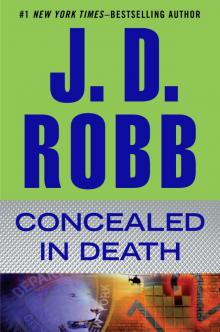 Concealed in Death
Concealed in Death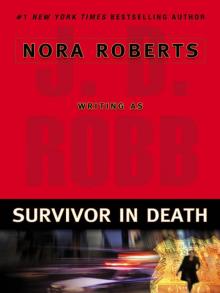 Survivor in Death
Survivor in Death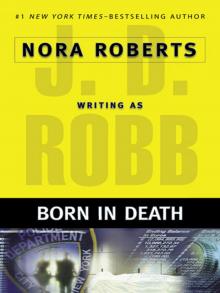 Born in Death
Born in Death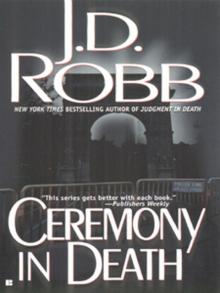 Ceremony in Death
Ceremony in Death Indulgence in Death
Indulgence in Death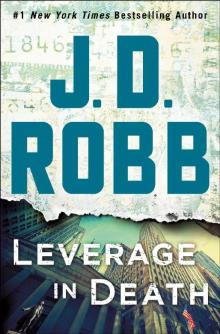 Leverage in Death
Leverage in Death Devoted in Death
Devoted in Death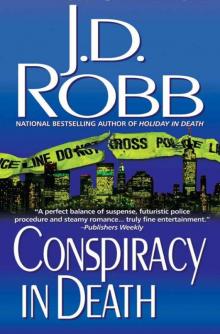 Conspiracy in Death
Conspiracy in Death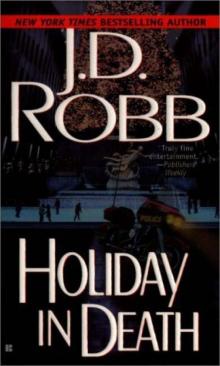 Holiday in Death
Holiday in Death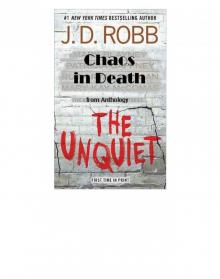 The Unquiet
The Unquiet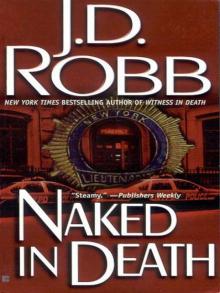 Naked in Death
Naked in Death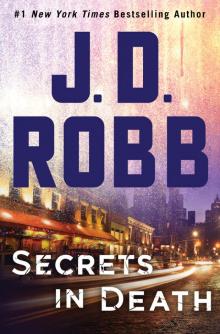 Secrets in Death
Secrets in Death Seduction in Death
Seduction in Death Strangers in Death
Strangers in Death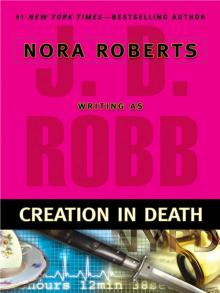 Creation in Death
Creation in Death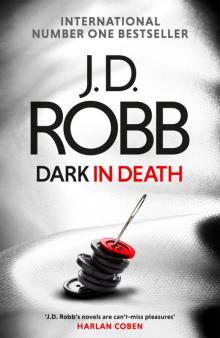 Dark in Death
Dark in Death Possession in Death
Possession in Death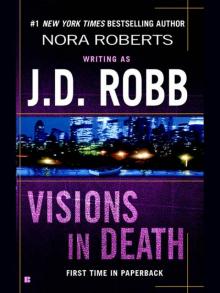 Visions in Death
Visions in Death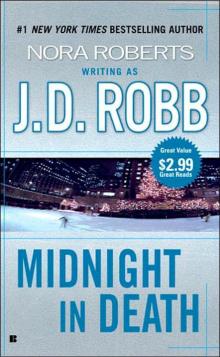 Midnight in Death
Midnight in Death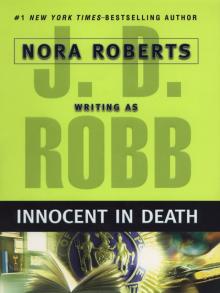 Innocent in Death
Innocent in Death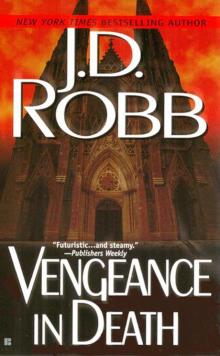 Vengeance in Death
Vengeance in Death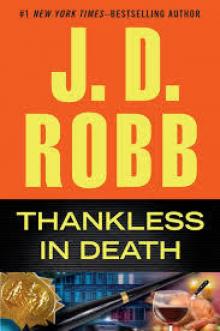 Thankless in Death
Thankless in Death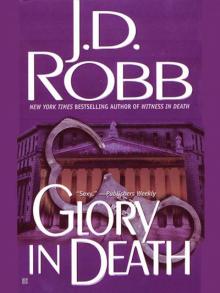 Glory in Death
Glory in Death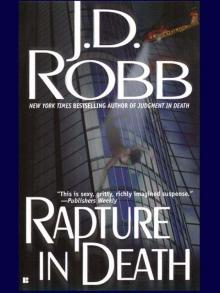 Rapture in Death
Rapture in Death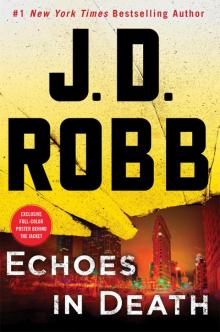 Echoes in Death
Echoes in Death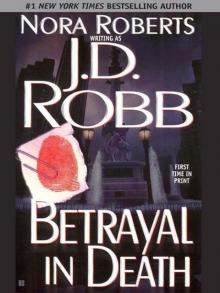 Betrayal in Death
Betrayal in Death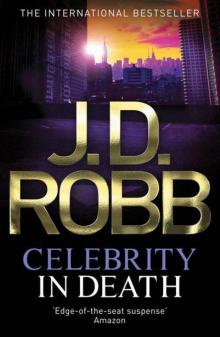 Celebrity in Death
Celebrity in Death Immortal in Death
Immortal in Death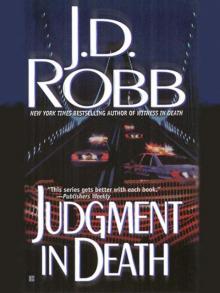 Judgment in Death
Judgment in Death Ritual in Death
Ritual in Death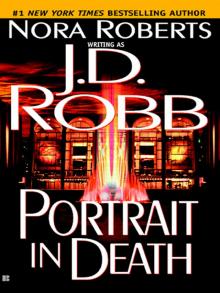 Portrait in Death
Portrait in Death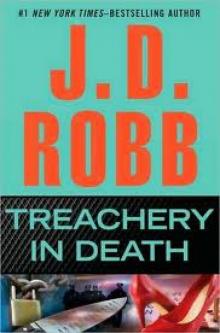 Treachery in Death
Treachery in Death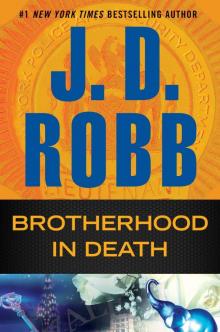 Brotherhood in Death
Brotherhood in Death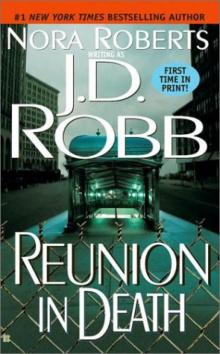 Reunion in Death
Reunion in Death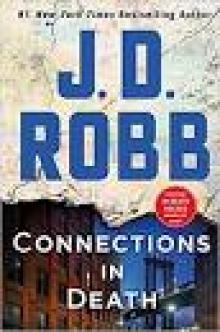 Connections in Death: An Eve Dallas Novel
Connections in Death: An Eve Dallas Novel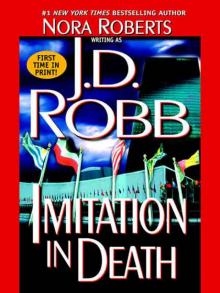 Imitation in Death
Imitation in Death New York to Dallas
New York to Dallas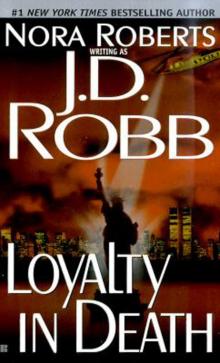 Loyalty in Death
Loyalty in Death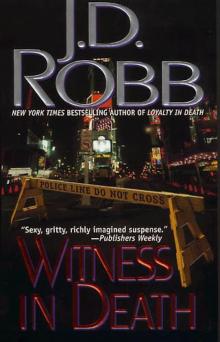 Witness in Death
Witness in Death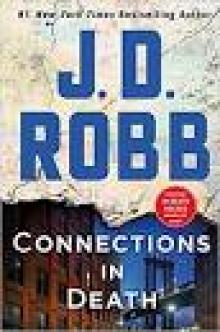 Connections in Death
Connections in Death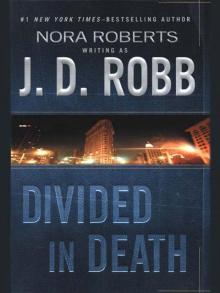 Divided in Death
Divided in Death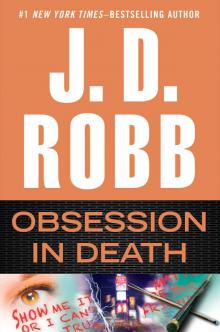 Obsession in Death
Obsession in Death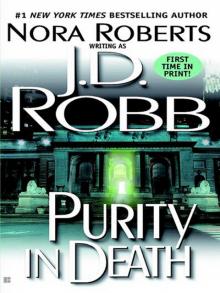 Purity in Death
Purity in Death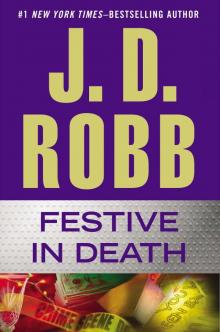 Festive in Death
Festive in Death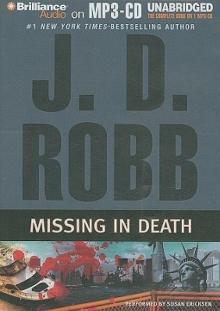 Missing in Death
Missing in Death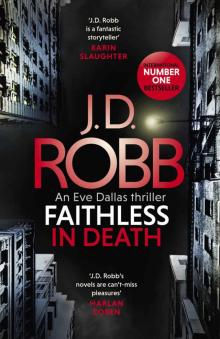 Faithless in Death: An Eve Dallas Thriller (Book 52)
Faithless in Death: An Eve Dallas Thriller (Book 52)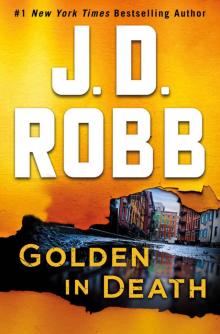 Golden in Death
Golden in Death The In Death Christmas Collection
The In Death Christmas Collection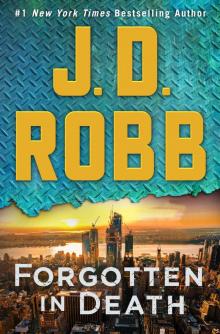 Forgotten in Death
Forgotten in Death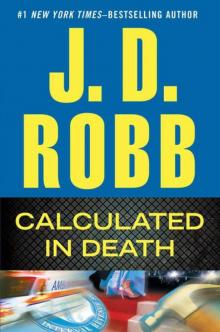 Calculated in Death
Calculated in Death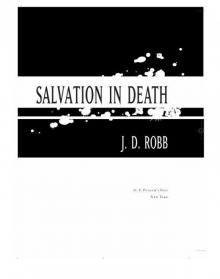 Salvation in Death
Salvation in Death Interlude in Death
Interlude in Death Haunted in Death
Haunted in Death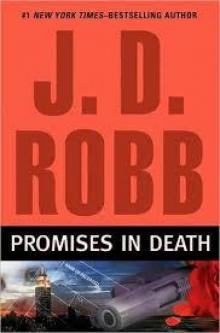 Promises in Death
Promises in Death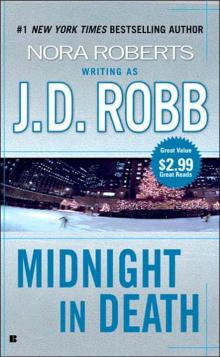 In Death 07.5 - Midnight in Death
In Death 07.5 - Midnight in Death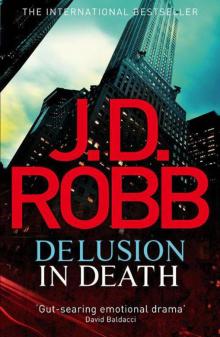 44 Delusion in Death
44 Delusion in Death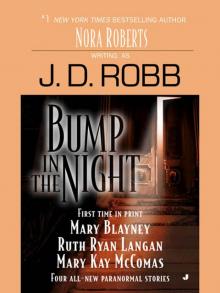 Bump in the Night
Bump in the Night The In Death Collection, Books 16-20
The In Death Collection, Books 16-20![[In Death 17] - Imitation in Death Read online](http://i1.bookreadfree.com/i/03/20/in_death_17_-_imitation_in_death_preview.jpg) [In Death 17] - Imitation in Death
[In Death 17] - Imitation in Death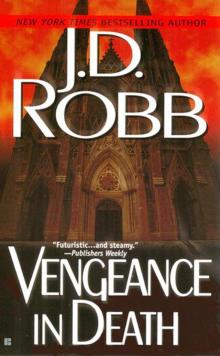 In Death 06 - Vengeance in Death
In Death 06 - Vengeance in Death Dead Of Night
Dead Of Night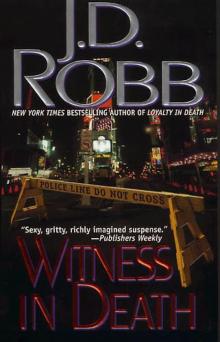 In Death 10 - Witness in Death
In Death 10 - Witness in Death![[In Death 16] - Portrait in Death Read online](http://i1.bookreadfree.com/i1/03/27/in_death_16_-_portrait_in_death_preview.jpg) [In Death 16] - Portrait in Death
[In Death 16] - Portrait in Death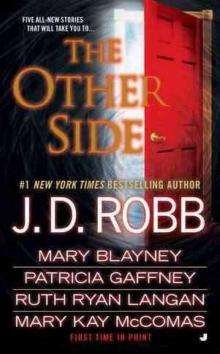 Possession in Death edahr-39
Possession in Death edahr-39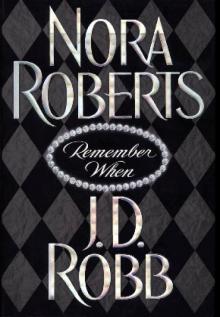 Remember When edahr-20
Remember When edahr-20 Big Jack
Big Jack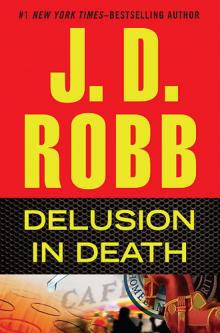 Delusion in Death edahr-44
Delusion in Death edahr-44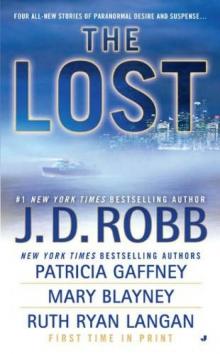 Missing in Death edahr-36
Missing in Death edahr-36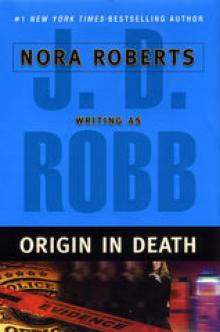 Origin in Death edahr-24
Origin in Death edahr-24![[In Death 18] - Divided in Death Read online](http://i1.bookreadfree.com/i1/04/03/in_death_18_-_divided_in_death_preview.jpg) [In Death 18] - Divided in Death
[In Death 18] - Divided in Death The Lost
The Lost![[In Death 05] - Ceremony in Death Read online](http://i1.bookreadfree.com/i1/04/01/in_death_05_-_ceremony_in_death_preview.jpg) [In Death 05] - Ceremony in Death
[In Death 05] - Ceremony in Death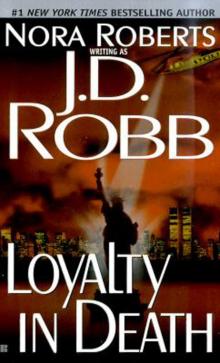 In Death 09 - Loyalty in Death
In Death 09 - Loyalty in Death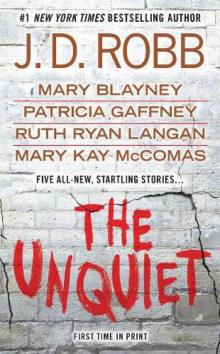 Chaos in Death edahr-42
Chaos in Death edahr-42 In Death 12.5 - Interlude in Death
In Death 12.5 - Interlude in Death![In Death [47] Leverage in Death Read online](http://i1.bookreadfree.com/i1/04/01/in_death_47_leverage_in_death_preview.jpg) In Death [47] Leverage in Death
In Death [47] Leverage in Death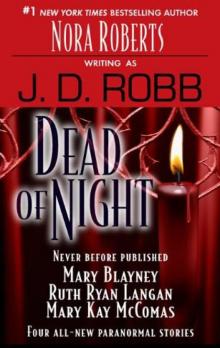 In Death - 24.50 - Dead of Night
In Death - 24.50 - Dead of Night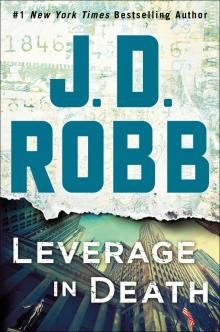 Leverage in Death--An Eve Dallas Novel
Leverage in Death--An Eve Dallas Novel![[In Death 24] - Innocent in Death Read online](http://i1.bookreadfree.com/i1/04/05/in_death_24_-_innocent_in_death_preview.jpg) [In Death 24] - Innocent in Death
[In Death 24] - Innocent in Death![[In Death 15] - Purity in Death Read online](http://i1.bookreadfree.com/i1/04/05/in_death_15_-_purity_in_death_preview.jpg) [In Death 15] - Purity in Death
[In Death 15] - Purity in Death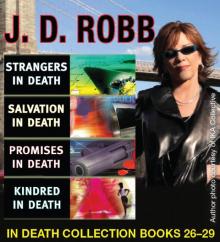 The In Death Collection, Books 26-29
The In Death Collection, Books 26-29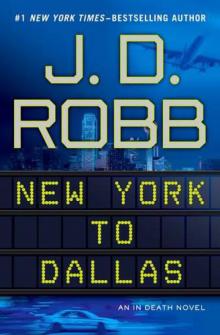 New York to Dallas edahr-41
New York to Dallas edahr-41 The Other Side
The Other Side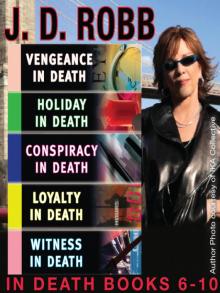 The In Death Collection 06-10
The In Death Collection 06-10![[In Death 08] - Conspiracy in Death Read online](http://i1.bookreadfree.com/i2/04/05/in_death_08_-_conspiracy_in_death_preview.jpg) [In Death 08] - Conspiracy in Death
[In Death 08] - Conspiracy in Death The In Death Collection, Books 21-25
The In Death Collection, Books 21-25 Memory in Death edahr-25
Memory in Death edahr-25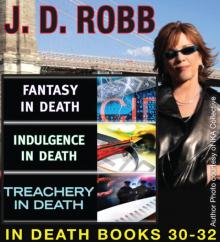 The In Death Collection, Books 30-32
The In Death Collection, Books 30-32 Down the Rabbit Hole
Down the Rabbit Hole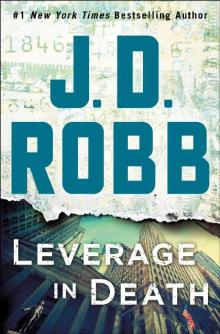 Leverage in Death: An Eve Dallas Novel (In Death, Book 47)
Leverage in Death: An Eve Dallas Novel (In Death, Book 47)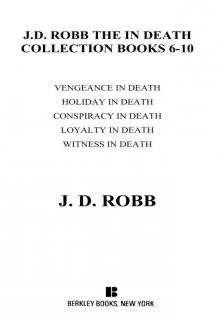 The In Death Collection, Books 6-10
The In Death Collection, Books 6-10 The In Death Collection, Books 11-15
The In Death Collection, Books 11-15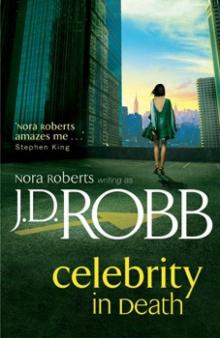 Celebrity in Death edahr-43
Celebrity in Death edahr-43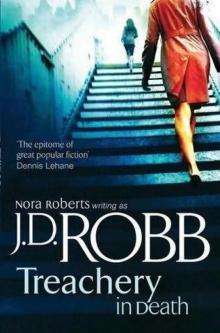 Treachery in Death edahr-40
Treachery in Death edahr-40![[In Death 12] - Betrayal in Death Read online](http://i1.bookreadfree.com/i2/04/13/in_death_12_-_betrayal_in_death_preview.jpg) [In Death 12] - Betrayal in Death
[In Death 12] - Betrayal in Death The In Death Collection, Books 1-5
The In Death Collection, Books 1-5